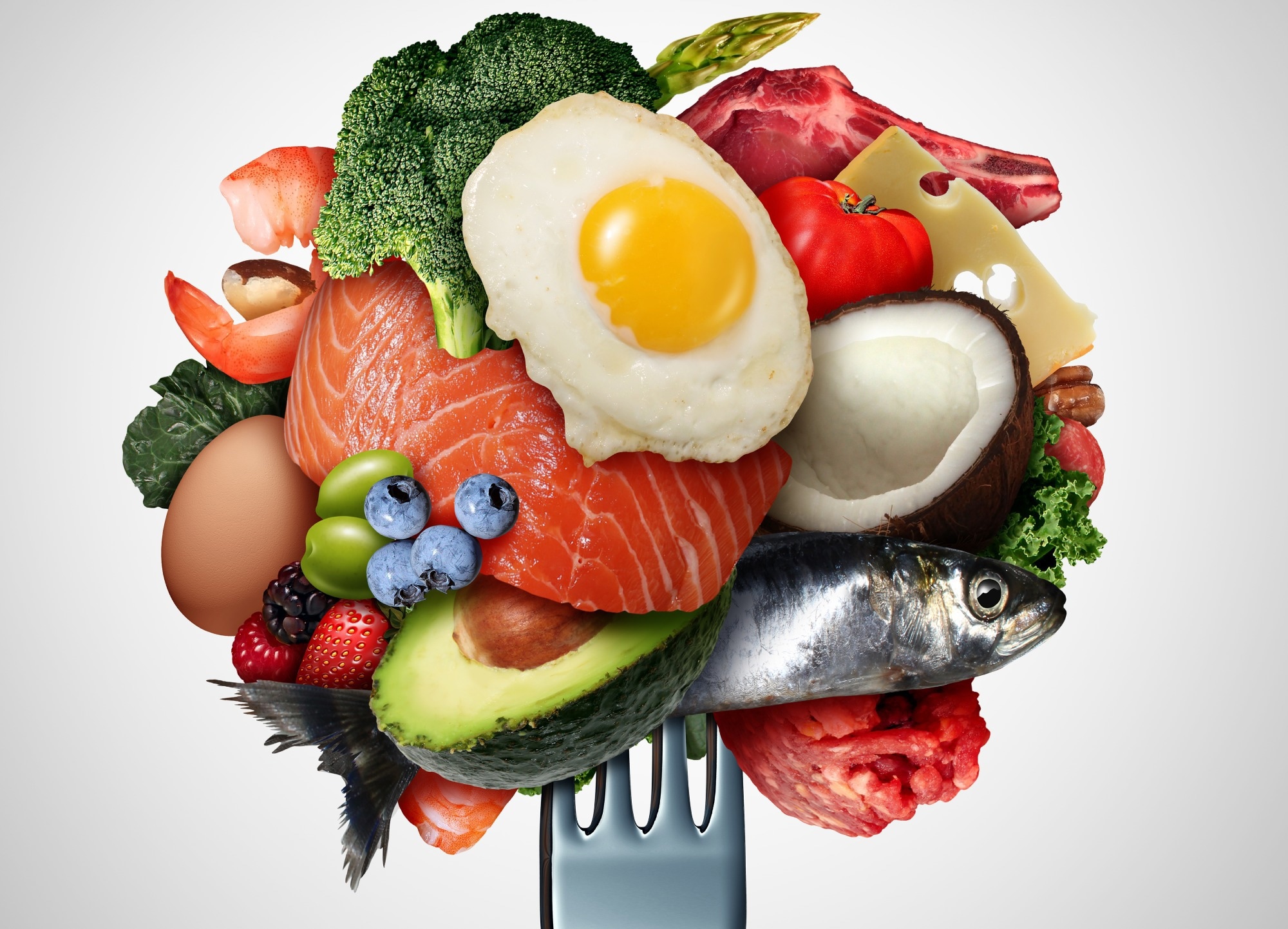In a recent study published in the journal Frontiers in Nutrition, a group of researchers investigated whether a ketogenic diet (KD) reduces a neurobiological craving signature (NCS) and self-reported alcohol wanting in patients undergoing inpatient treatment for alcohol use disorder (AUD).
 Study: Ketogenic diet reduces a neurobiological craving signature in inpatients with alcohol use disorder. Image Credit: Lightspring / Shutterstock
Study: Ketogenic diet reduces a neurobiological craving signature in inpatients with alcohol use disorder. Image Credit: Lightspring / Shutterstock
Background
AUD poses a major global health issue, responsible for 5% of worldwide deaths. Characterized by intense cravings and continued consumption despite adverse consequences, current treatments are limited. A novel approach involving a KD- high-fat, low-carb diet- shows promise by enhancing brain energetics, potentially reducing withdrawal symptoms and cravings. Recent studies, including research demonstrating a decrease in withdrawal symptoms and cravings among AUD patients on a KD, highlight its potential efficacy. Furthermore, an NCS identified through brain imaging offers insight into craving intensity. Further research is needed to fully understand the mechanisms by which a KD influences NCS and to explore its long-term efficacy and applicability across diverse populations with AUD.
About the study
The present study provides a secondary analysis of functional magnetic resonance imaging (fMRI) data on alcohol cue reactivity, initially collected in a clinical trial, to explore the effects of a KD versus a standard American (SA) diet in individuals with AUD. The participants, admitted to the National Institute on Alcohol Abuse and Alcoholism for up to four weeks, were randomly assigned to either diet within two days of admission. Both diets were equicaloric, ensuring that any observed effects could be attributed to the diet composition rather than caloric intake.
Participants underwent rigorous screening to ensure they met the study's inclusion criteria, excluding those with contraindications for MRI or major medical conditions. The study's diet intervention was carefully designed, with the KD providing a 4:1 ratio of fats to carbohydrates and proteins and the SA diet offering a more balanced caloric distribution. Meals were prepared by the Nutrition Department Metabolic Kitchen, ensuring precise dietary control.
Blood ketone levels were monitored throughout the study, providing biochemical evidence of the diet's physiological effects. Participants' alcohol craving was assessed using the Desire for Alcohol Questionnaire, and intelligence, alcohol consumption history, and dependence severity were also evaluated through standardized questionnaires.
MRI scans were conducted at three intervals during the diet intervention, with preprocessing and analysis tailored to explore the NCS. This involved comparing brain activation patterns in response to alcohol versus food cues, seeking to understand how the KD might modulate this neurobiological response to reduce alcohol craving.
Study results
The study showed a significant increase in serum beta-hydroxybutyrate (BHB) levels in the KD group compared to those on a SA diet, indicating successful induction of nutritional ketosis. Initially, there was no difference in blood ketone levels between the groups. However, as the study progressed, participants on the KD demonstrated a notable rise in BHB levels, reaching a peak in the second week and slightly decreasing in the third week, which was attributed to minor non-compliance in some participants. In contrast, the SA group maintained low BHB levels throughout, confirming adherence to the non-ketogenic diet.
Regarding self-reported alcohol craving, measured through the Desire for Alcohol Questionnaire (DAQ), there was a trend towards a reduction over time, particularly in the KD group, suggesting a potential effect of the diet in diminishing alcohol craving. This trend, however, did not achieve statistical significance when comparing the two dietary interventions directly.
The study also assessed participants' reactivity to alcohol cues using fMRI, revealing a decrease in the "wanting" of alcohol cues over time in the KD group, an effect not observed in the SA group. The difference between groups over time was statistically significant, highlighting the potential of the KD in reducing the desire for alcohol in patients with AUD. Interestingly, this effect was specific to alcohol cues, as no significant changes were observed in response to food cues, nor were there significant differences in the valence ratings of alcohol or food cues.
A key finding of this analysis was the significant effect of dietary groups on the NCS for alcohol over food cues, with the KD group exhibiting lower NCS levels than the SA group, suggesting a reduced neural craving signature in response to alcohol cues among those on the KD. However, no significant time-dependent changes in NCS were observed, indicating that the effect of the KD on reducing neurobiological craving was consistent throughout the study period. Furthermore, a correlation between average serum BHB levels and NCS scores suggested a link between higher ketone levels and lower craving for alcohol, aligning with the hypothesis that nutritional ketosis could modulate craving responses in AUD.